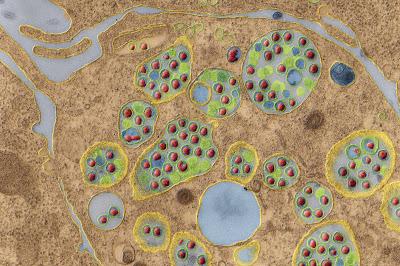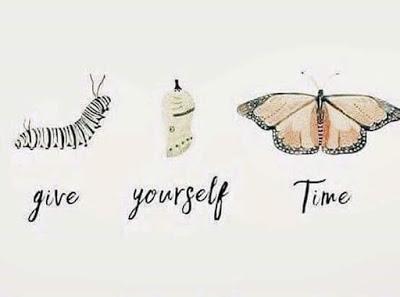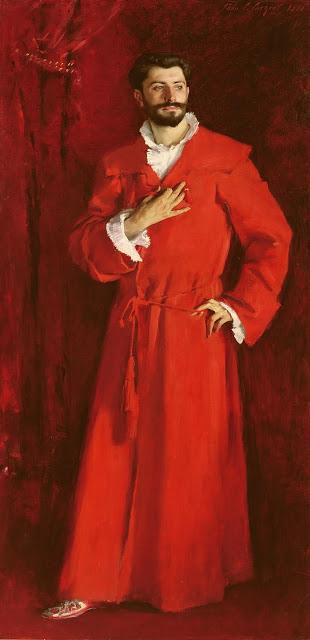
El grupo de medicina reflexiva es un conjunto de médicos de familia de Sevilla que me han compartido el presente manifiesto. Por su calidad comparto una selección de ideas en este blog y remito al documento original que he puesto a disposición pública en este enlace.
Me parece oportuno aprovechar la difícil coyuntura social y sanitaria para provocar reflexión y animar tanto a los profesionales sanitarios como a la sociedad a tomar conciencia del marco de referencia del contrato entre la medicina y la sociedad.
La verdadera transformación, y en su caso evolución, de nuestras sociedades requerirá de una profunda visión que vaya más allá de lo aparente, del consumo de recursos sanitarios y del brillo de la tecnología.
Sin más introducción les dejo con el extracto documento:
https://drive.google.com/file/d/1WwQa9im3tCf5tcoQgXgediUR4IctucOz/view?usp=drivesdk

Antes de los aplausos: el falso contrato entre medicina y sociedad
Pocos negarán la existencia de problemas graves y endémicos en la asistencia sanitaria con los que nos vemos obligados a convivir y que hasta ahora parecían inamovibles. A nuestro entender los más onerosos son la consecuencia de lo que Richard Smith denominó "el falso contrato" vigente entre medicina y sociedad, entre médicos y pacientes .
Según Smith, en lo que atañe a los pacientes la principal falsedad de ese contrato es su
creencia de que la medicina moderna tiene poderes casi ilimitados; poderes mediante los
que los médicos podemos solucionar sus problemas, incluso los sociales.
Esta creencia es una exageración de la ilusión terapéutica, que se ha definido como la "convicción de que las pruebas diagnósticas y los tratamientos son más seguros y eficaces de lo que demuestra la evidencia procedente de investigación independiente y de alta calidad" .
A diferencia de los pacientes, los médicos solemos tener una conciencia aguda de las
limitaciones de lo que podemos hacer. En nuestro caso la falsedad del contrato no estriba
en sobreestimar los poderes de la medicina6, sino en silenciar sus limitaciones: "Lo mejor
es que guarde silencio acerca de todo esto, para no decepcionar a mis pacientes y perder mi estatus" .
La ilusión terapéutica conlleva expectativas desmesuradas, una y otra son consecuencias no deseadas de los logros de la medicina.
La factura la hemos pagado todos, los pacientes y nosotros, y se nos ha presentado bajo cuatro aspectos: iatrogenia clínica, iatrogenia cultural, despilfarro e insatisfacción.
ILUSIÓN TERAPÉUTICA → EXPECTATIVAS DESMESURADAS → PRESIÓN (DEL PACIENTE) → CLAUDICACIÓN (DEL MÉDICO) → SOBREUTILIZACIÓN →
IATROGENIA CLÍNICA + IATROGENIA CULTURAL + DESPILFARRO + INSATISFACCIÓN
La ilusión terapéutica genera expectativas desmesuradas en los pacientes que los médicos no corregimos adecuadamente; en lugar de ello, claudicamos sobreutilizando las intervenciones clínicas; utilizamos pruebas diagnósticas, tratamientos, medidas preventivas, interconsultas, cuando su balance beneficios- daños no es lo suficientemente favorable, y las consecuencias de hacerlo son gravosas: iatrogenia clínica, iatrogenia cultural, despilfarro e insatisfacción.
Richard Smith interpretó la cobertura negativa por parte de los medios de comunicación de las consecuencias del falso contrato, como un signo del despertar de la sociedad a las limitaciones de la medicina; un despertar, que aunque resultara transitoriamente incómodo, quizá podía conducir a una relación médico-paciente mucho más honesta, adulta y afable. Esa relación debía tener como base un nuevo contrato. Así articuló sus cláusulas:
Tanto los pacientes como los médicos saben que:
La muerte, la enfermedad y el dolor son parte de la vida.
La medicina tiene poderes limitados, particularmente para resolver los problemas sociales; además tiene riesgos.
Los médicos no lo saben todo; necesitan sopesar las decisiones y apoyo psicológico.
Los médicos y los pacientes están juntos en esto.
Los pacientes no pueden abandonar, sin más, sus problemas en las manos
de los médicos.
Los médicos deben reconocer abiertamente sus limitaciones.
Los políticos deben abstenerse de hacer promesas extravagantes y centrarse en la realidad.
Durante unas semanas al menos, médicos y pacientes nos hemos demostrado a nosotros mismos que podemos tener comportamientos "virtuosos": el nuevo contrato de Smith entró en escena.
¿Debemos desear volver a la situación previa sin más? Ciertamente hay muchos aspectos de la "vieja normalidad" (así es como deberíamos llamarla para ser congruentes) que con toda razón anhelamos recuperar, pero eso no debería obnubilarnos: la "vieja normalidad" incluía también otros muchos aspectos sin duda indeseables.
La pandemia ha evidenciado las limitaciones de la medicina ¿pero de qué medicina?: de la medicina menguada, de la medicina centrada en la tecnología que ayuda a veces y otras tantas daña, despilfarra y frustra. No de la medicina en sí, la que se ocupa de las personas sin hacerles promesas
falsas: la que cura a veces, alivia a menudo, y siempre tiene a su disposición la posibilidad
de consolar. sólo en este contexto puede la tecnología médica mostrar todo su valor, solo así puede trabajar en nuestro favor y no en nuestra contra.
Un sistema sanitario bien financiado y organizado es una condición necesaria pero no suficiente. Además necesitamos médicos y pacientes virtuosos. Durante unas semanas médicos y pacientes nos hemos demostrado a nosotros mismos que podemos ser virtuosos, o al menos adoptar comportamientos virtuosos. El nuevo contrato ha funcionado aunque haya sido rudimentariamente y forzado por el miedo.
Como ha señalado Sara Maitland, hay preguntas adicionales igualmente relevantes que tienen la
obligación de hacerse: ¿soy un paciente virtuoso? ¿acudo a consultar con las expectativas,
las esperanzas, la gratitud, la humildad, el coraje, la voluntad adecuadas? ¿con qué disposiciones debería acudir a la consulta? ¿cómo podría desarrollar mi capacidad para ser parte del "equipo"?
INVITACIÓN
Los componentes del Grupo de Medicina Reflexiva somos en su mayoría médicos de familia y es sobre todo a ellos a quienes nos dirigimos; lo que afirmamos en este manifiesto lo hacemos desde esa perspectiva. Creemos no obstante que es asumible por otros profesionales sanitarios (médicos de otras especialidades, enfermeras, farmacéuticos, ...) y no solo por ellos, también por pacientes, políticos, ... Por ello invitamos a los médicos de familia a adherirse a este manifiesto, y también a cualquiera que vea reflejadas sus ideas y experiencias en él.
Puedes notificarnos tu adhesión dirigiéndote a la siguiente dirección de correo electrónico: [email protected]; también puedes utilizarla para cualquier sugerencia que quieras hacernos o para solicitarnos información adicional.
Este documento no está sujeto a copyright. Agradecemos su difusión citando la fuente.

Towards a new contract between medicine and society.
The Reflective Medicine Group is a group of family doctors from Seville who have shared this manifesto with me. For its quality I share a selection of ideas in this blog and refer to the original document that I have made available to the public in this link.
I think it is appropriate to take advantage of the difficult social and health situation to provoke reflection and encourage both health professionals and society to become aware of the frame of reference of the contract between medicine and society.
The real transformation, and if necessary evolution, of our societies will require a profound vision that goes beyond the apparent, the consumption of health resources and the brilliance of technology.
Without further introduction I leave you with the extract from the document:
https://drive.google.com/file/d/1WwQa9im3tCf5tcoQgXgediUR4IctucOz/view?usp=drivesdk
Before the applause: the false contract between medicine and society
Few will deny the existence of serious and endemic problems in health care with which we are forced to live and which until now seemed immovable. In our opinion, the most onerous ones are the consequence of what Richard Smith called "the false contract" in force between medicine and society, between doctors and patients. In Smith's view, the main falsehood of this contract as far as patients are concerned is its belief that modern medicine has almost unlimited powers; powers through
that we doctors can solve their problems, even their social problems.
This belief is an exaggeration of the therapeutic illusion, which has been defined as the "belief that diagnostic tests and treatments are safer and more effective than evidence from independent, high-quality research". Unlike patients, we physicians often have an acute awareness of limitations of what we can do. In our case the falsity of the contract does not lie in overestimating the powers of medicine, but in silencing its limitations: "The best is that I keep silent about all this, so as not to disappoint my patients and lose my status. The therapeutic illusion carries with it unreasonable expectations, both of which are unwanted consequences of the achievements of medicine.
The bill has been paid by all of us, the patients and us, and has been presented to us under four aspects: clinical iatrogeny, cultural iatrogeny, waste and dissatisfaction.
THERAPEUTIC ILLUSION → EXCESSIVE EXPECTATIONS → PRESSURE (OF THE PATIENT) → CLAUDICATION (OF THE DOCTOR) → OVERUSE →
CLINICAL IATROGENY + CULTURAL IATROGENY + WASTE + DISSATISFACTION
The therapeutic illusion generates excessive expectations in patients that we doctors do not correct adequately; instead, we give in by overusing clinical interventions; we use diagnostic tests, treatments, preventive measures, inter-consultations, when their benefit-harm balance is not sufficiently favorable, and the consequences of doing so are burdensome: clinical iatrogeny, cultural iatrogeny, waste and dissatisfaction.
Richard Smith interpreted the negative media coverage of the consequences of the false contract as a sign of society's awakening to the limitations of medicine; an awakening that, although temporarily uncomfortable, could perhaps lead to a much more honest, adult and friendly doctor-patient relationship. That relationship had to be based on a new contract. This is how he articulated his clauses: Both patients and doctors know that:
- Death, illness and pain are part of life.
- Medicine has limited powers, particularly to solve social problems; it also has risks.
- Doctors do not know everything; they need to weigh decisions and psychological support.
- Doctors and patients are in this together.
- Patients can't just abandon their problems in the hands
- from the doctors.
- Physicians must openly acknowledge their limitations.
- Politicians must refrain from making extravagant promises and focus on reality.
For a few weeks at least, doctors and patients have shown ourselves that we can behave "virtuously": Smith's new contract came into play.
Should we wish to return to the previous situation without further ado? Certainly there are many aspects of the "old normal" (that's what we should call it to be consistent) that we rightly wish to recover, but that shouldn't obscure us: the "old normal" also included many other undoubtedly undesirable aspects.
The pandemic has shown the limitations of medicine, but which medicine: of dwindling medicine, of technology-centred medicine that sometimes helps and sometimes hurts, wastes and frustrates. Not medicine itself, which takes care of people without making promises false: the one that cures sometimes, relieves often, and always has at its disposal the possibility Only in this context can medical technology show its full value, only then can it work for us and not against us.
A well-financed and organized health system is a necessary but not sufficient condition. We also need virtuous doctors and patients. For a few weeks doctors and patients have shown themselves that we can be virtuous, or at least adopt virtuous behaviour. The new contract has worked even if it has been rudimentary and forced by fear.
As Sara Maitland has pointed out, there are additional, equally relevant questions that have
obligation to become: am I a virtuous patient? do I consult with expectations, the right hopes, gratitude, humility, courage, will? with what dispositions should I come to the consultation? how could I develop my capacity to be part of the "team"?
INVITATION
The members of the Reflexive Medicine Group are mostly family doctors and it is to them that we address ourselves; what we affirm in this manifesto we do so from that perspective. We believe, however, that it is acceptable to other health professionals (doctors of other specialities, nurses, pharmacists, etc.) and not only to them, but also to patients, politicians, etc. We therefore invite family doctors to adhere to this manifesto, and also anyone who sees their ideas and experiences reflected in it.
You can notify us of your adherence by writing to the following e-mail address: [email protected]; you can also use it for any suggestions you wish to make or to request additional information from us.
This document is not subject to copyright. We appreciate its dissemination citing the source.
MIEMBROS DEL GRUPO DE MEDICINA REFLEXIVA (por orden alfabético)
Manuel Aljama Alcántara
Médico de familia, Centro de Salud María Fuensanta Pérez Quirós, Sevilla.
Manuel Caraballo Daza
Médico de familia, Centro de Salud Los Bermejales, Sevilla.
Daniel Cutiño Ruiz
Médico de familia, Hospital de Alta Resolución de Lebrija, Sevilla.
José Antonio Domínguez Domínguez
Médico de familia, Centro de Salud Ronda Histórica, Sevilla.
Purificación Encina Encina
Médica de familia, Centro de Salud Mercedes Navarro, Sevilla.
Fernando Gamboa Antiñolo Internista, Hospital El Tomillar, Sevilla.
Eduardo Gómez Camacho
Internista, Hospital Universitario Virgen del Rocío, Sevilla.
Rafael Jiménez Toboso
Médico de familia, Centro de Salud Montequinto, Dos Hermanas, Sevilla.
Ignacio Linares Sayago
Médico, en espera de iniciar la residencia en Medicina de Familia y Comunitaria, Sevilla.
María Luisa Manzanares Torné. Médica de familia, Centro de Salud
Mercedes Martínez Granero Médica de familia, Centro de Salud
Antonio Montaño Barrientos Médico de familia, Centro de Salud
Antonio Mora Quintero
Médico de familia, Centro de Salud
María Nieves Moreno Muela Médica de familia, Centro de Salud
Julio Rojas García de Paso Médico de familia, Centro de Salud
Irene de Tena Roger
Médica de familia, Centro de Salud
Pino Montano B, Sevilla. Camas, Sevilla.
Ronda Histórica, Sevilla. Ronda Histórica, Sevilla. El Greco, Sevilla.
Los Bermejales, Sevilla.
Alamillo, Sevilla.
José Antonio de la Torre Cruceye Pediatra, Centro de Salud Cisneo Alto, Sevilla.
Joaquín Torres Moreno
Médico de familia, Centro de Salud Ronda Histórica, Sevilla.
